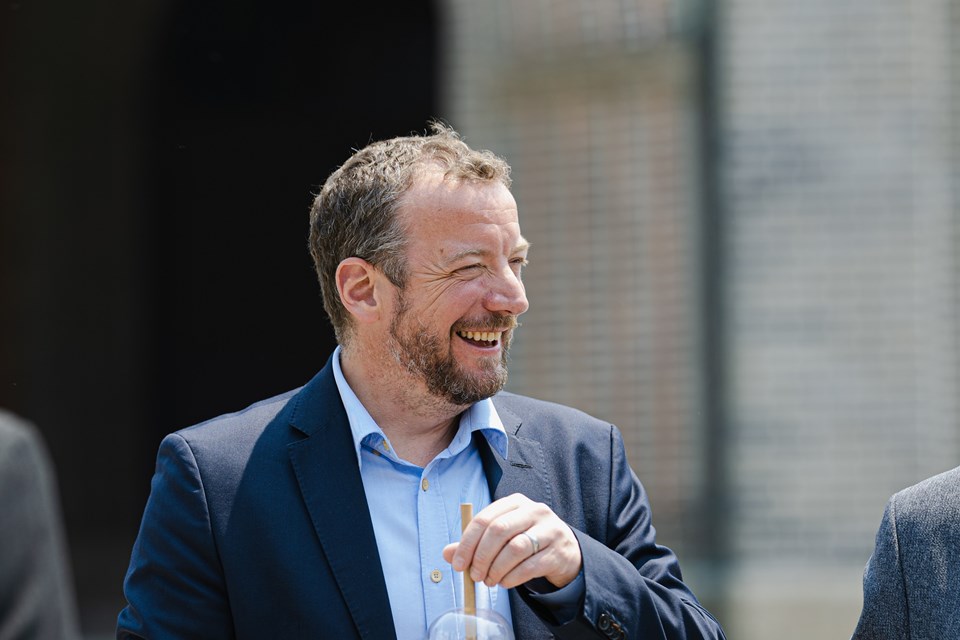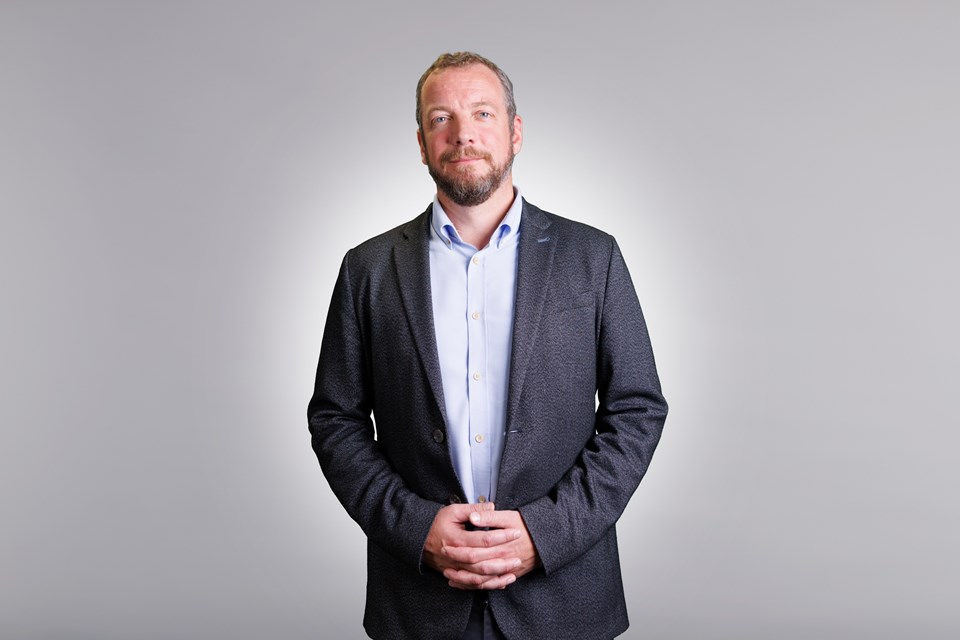QWhat does working in offshore wind mean to you, and what do you enjoy most about your job?
I’ve been involved in offshore wind since the industry first started. I'm genuinely passionate about it and its place in driving our energy transition. I’m very proud to be a part of it.
I'm also proud that the UK has been one of the leaders in offshore wind. What was once a small industry in the North Sea is now globalizing and emerging in new markets. It’s fantastic to open my emails in the morning and see offshore wind news from Japan, Korea, Vietnam, Australia, the United States, Brazil, Colombia and more.
When I was involved more directly in projects, I loved supporting them from the very early concept stage through consent to a financial investment decision, and in some cases, construction.
Now, I’m looking at the strategic growth of the business. There's a lot to love about that! I’m involved in helping RPS expand and helping lots of new people across RPS to get involved in offshore wind. Opening new offices is fantastic, and so is seeing our reputation grow! It’s great to hear clients say how they regard us in high esteem for all the services we provide.
Quick Q&A
On your visits to Korea, where is your favourite place?
The archery centre from the 1988 Seoul Olympics! You can stand and watch people practising.
Where else have you visited in Asia?
I’ve spent time working in Vietnam, Japan, Taiwan and Korea.
What are you most proud of outside work?
My family. Spending time with them is the best thing I could possibly be doing.
What did you want to be, growing up?
I wanted to be a professional tennis player.
QWhat benefits will investment in offshore wind provide for Asia?
Offshore wind will be a key part of the energy transition and progress towards net-zero. This has been emphasised by various commitments and policies at government level. World events are also driving energy security and independence; offshore wind has an important part to play here, too.
There’s a lot of potential economic benefit in taking advantage of the supply chain opportunities. Korea is particularly well set up to do this, as is Japan.
QWhat can you tell us about the big opportunities in offshore wind for Korea?
Korea has the potential to deploy offshore wind at scale and relatively quickly. If you look at the other markets in Europe, they had to go through a process of scaling up first. There had to be a journey from demonstration phase to commercialisation and industrialisation, before they could reach the really large-scale projects that exist now.
Korea has an opportunity to go through that process much faster. There is still some element of demonstration-scale projects, but these smaller projects will help develop the process and the supply chain. This rapid scaling-up means Korea will be able to generate a lot of offshore wind, relatively rapidly, for its energy mix.
Korea has historically shown an incredible ability to develop and evolve its economy very rapidly. You can see that with the success of its shipbuilding industry, for example. Korea has the potential to develop a very robust supply chain to support offshore wind growth.
QWhy is Korea’s approach to infrastructure development so strong?
Korea is combining their own approach to developing projects with lessons learned internationally. If they continue to do this effectively, the result will be a very good blend of best practices.
We’re in dialogue with academics in Korea [for example, our MOU with MESI], where there are projects up and running on how to integrate elements of international best practice into.
QElsewhere in Asia, what are the biggest opportunities going forward?
There are opportunities for a number of Asian markets to move into floating offshore wind, a technology with the potential to open up areas of seabed previously considered un-feasible using fixed foundation projects. Japan and Korea, particularly, could take a leading role in the expansion and deployment of floating offshore wind at commercial scale, and this will be key to achieving some of their ambitions and targets.
QWhat role does RPS have to play in successful, sustainable development in Asia?
We have a lot of expertise in supporting and advising on the sustainable development of large-scale infrastructure projects, including offshore wind.
In the case of offshore wind, this experience comes from having supported the industry from its early stages in Europe, and involvement in solving some of the challenges that projects, and the industry, have faced. This means we have a good understanding of offshore wind development, from the perspective of a whole host of different technical disciplines.
Ensuring the sustainable development of the industry will be key in how we work on our projects. Our model is to work very closely with local suppliers, bringing local knowledge of how projects need to be developed sustainably. We pair that with international expertise on how to develop successfully and sustainably at the same time, in compliance with the international standards and expectations put onto large infrastructure developments.
QDo you have any advice for someone entering your field?
Just immerse yourself in it and try to learn from everyone around you. In renewables (particularly offshore wind and project development), you work with people from many different technical disciplines, including oceanographers, geologists, ecologists, engineers, lawyers etc.
If you try and learn one thing from all of them, you'll be doing pretty well! Sometimes that might be technical skills. Sometimes it might be the “softer skills” of seeing how people approach and overcome different challenges.
QAnd what career advice would you give your younger self?
Be flexible. Be open to all the opportunities your career might provide you. You may start your career thinking you have a good understanding of the direction that you're going to take. Actually, the most exciting parts of your career are when you get to diversify what you do. I would say to myself, don't be fixed on what you think your path is. Always be open to opportunities to move into different areas and learn new things along the way.


